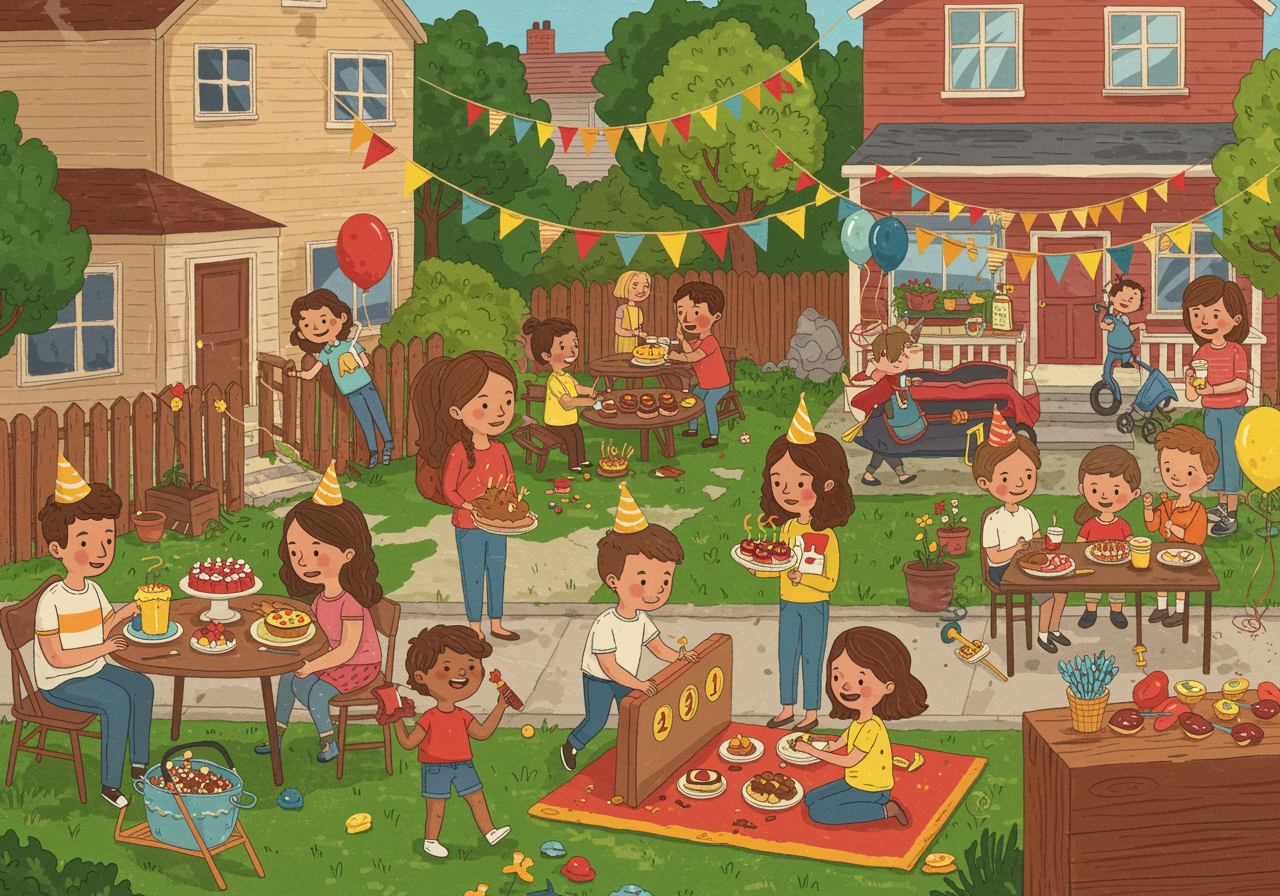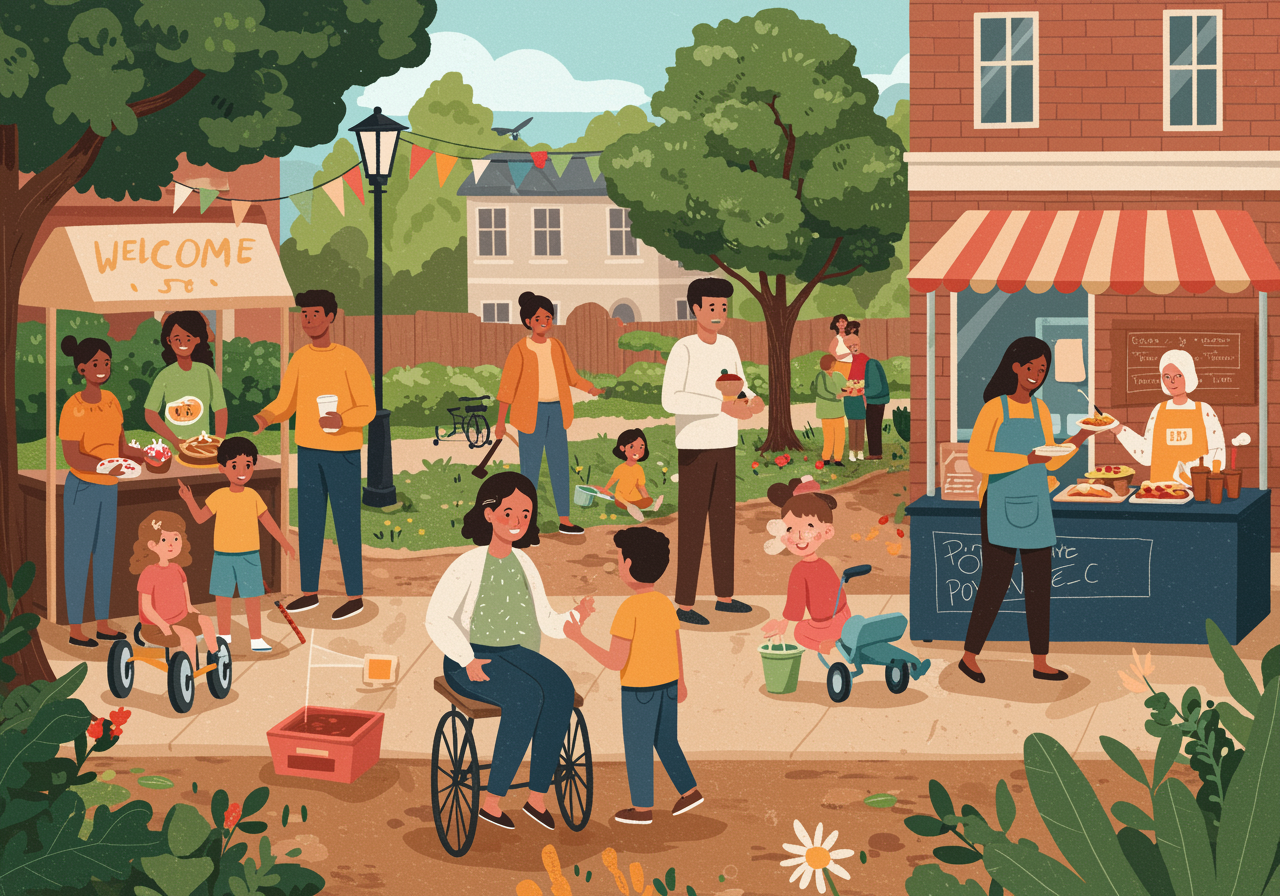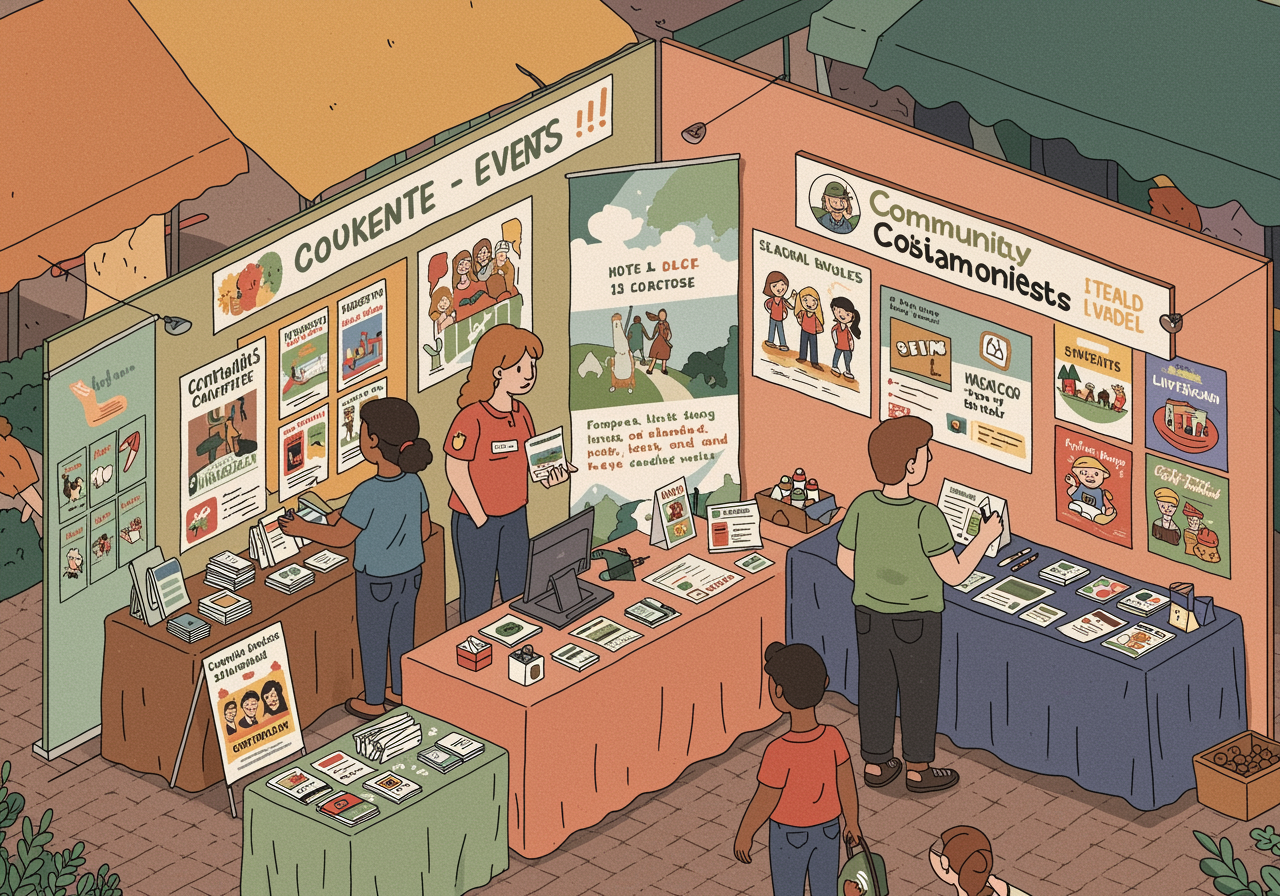The Magic of Getting Together: How Community Events Build Stronger Neighborhoods
Discover why events like Warrensville Community Day turn strangers into friends and communities into families
Explore how neighborhood gatherings create lasting bonds, break down walls between people, and make everyone feel like they truly belong somewhere special.
Overview
Think about the last time you went to a neighborhood block party, school festival, or community fair. Remember that warm feeling when you bumped into someone you knew, tried new food, or watched kids playing together while parents chatted nearby? Community events like Warrensville Community Day aren't just fun activities – they're like social glue that binds neighborhoods together. These gatherings help people discover they have more in common than they thought, create memories that last for years, and build the kind of trust that makes communities stronger and safer for everyone.

Understand in 30 Seconds
Get up to speed quickly
- Community Events Are Social Magnets: They pull people out of their homes and create natural opportunities for neighbors to meet, talk, and discover shared interests.
- Breaking Down the 'Stranger Danger' Wall: When people gather for fun activities, they stop being mysterious strangers and start becoming familiar faces with names and stories.
- Creating Shared Memories and Traditions: Events become annual traditions that everyone looks forward to, giving communities a sense of identity and pride.
- Building Safety Through Connection: When neighbors know each other, they look out for each other, creating informal neighborhood watch systems that keep everyone safer.
Real Life Scenario
Situations you can relate to
Imagine you're new to Warrensville Heights and feeling like an outsider. You don't know anyone, and your family feels isolated. Then Community Day arrives – there are food trucks, live music, games for kids, and local businesses showing off what they do. Your mom strikes up a conversation with another parent while you're both waiting for funnel cake. Your little sister makes friends on the bounce house. You discover the teen next door loves the same video games you do. By the end of the day, you've exchanged phone numbers with three families and learned about a youth soccer league starting next month. What started as a day of free entertainment became the beginning of feeling like you actually belong in your new neighborhood.

Role Play
Spark a conversation with “what if” scenarios
What if your family was organizing a booth at your local community day?
- Role play: Practice being community ambassadors by setting up a pretend booth in your living room. Take turns greeting 'visitors,' explaining what makes your neighborhood special, and answering questions about local resources.
What if you met someone at a community event who seemed really different from you?
- Role play: Role-play conversations with people from different backgrounds, ages, or interests. Practice finding common ground by asking about favorite foods, movies, or dreams for the future.
What if you were the mayor planning next year's community event?
- Role play: Brainstorm together what activities would bring different groups in your community together. Consider what would appeal to kids, teenagers, parents, and grandparents all at the same event.
FAQs
Frequently asked questions people want to know
Why don't people just meet their neighbors without special events?
Modern life keeps people busy and indoors. Events give everyone a reason to come outside at the same time and provide natural conversation starters.
How do community events help with problems in neighborhoods?
When people know each other personally, they're more likely to work together to solve problems, report suspicious activity, and support families in need.
What if someone feels too shy or awkward to attend community events?
Start small by volunteering to help or bringing a friend. Focus on activities rather than forced conversations – shared experiences make talking easier and more natural.
Examples in the Wild
See how this works day to day
- National Night Out events across the country have reduced crime rates by 16-20% in participating neighborhoods by strengthening neighbor relationships (National Association of Town Watch)
- After Hurricane Katrina, New Orleans neighborhoods with strong community connections and regular gatherings recovered 60% faster than isolated areas (American Journal of Community Psychology)
- The annual Taste of Chicago brings together 3 million people from diverse backgrounds, creating economic opportunities and cultural exchange (Chicago Department of Cultural Affairs)
- Small-town festivals in rural America generate $5.5 billion annually while preserving local traditions and strengthening community bonds (International Festivals and Events Association)
In Summary
What you should know before you start
- Community events transform neighborhoods from collections of houses into networks of connected people who care about each other
- Shared experiences at local gatherings break down barriers and help people discover common ground across different backgrounds
- Regular community celebrations create traditions and memories that give neighborhoods their unique identity and character
- When neighbors know each other through fun activities, they're more likely to help during tough times and work together on local issues
Pro-tip for Parents
You got this!
If your teen seems resistant to attending community events, don't force it but make it appealing. Let them bring a friend, find events with activities they enjoy, or give them a small job like helping with setup. Sometimes teens worry about looking 'uncool,' so emphasize the service aspect or how they can earn volunteer hours. Once they see their friends there and experience the positive energy, they often become enthusiastic participants.

Keep an Eye Out For
Find these examples in everyday life
- Local community calendars and neighborhood apps announcing upcoming festivals, block parties, or town halls
- News stories about communities coming together during emergencies or celebrations – great examples of neighbor support in action
- Volunteer opportunities at local events where your family can contribute and meet like-minded community members
Explore Beyond
Look up these related research topics
- How social media and technology are changing the way communities connect and organize events
- The role of local businesses in sponsoring and supporting community gatherings and economic development
- Ways that cultural festivals help preserve traditions while welcoming newcomers to diverse communities